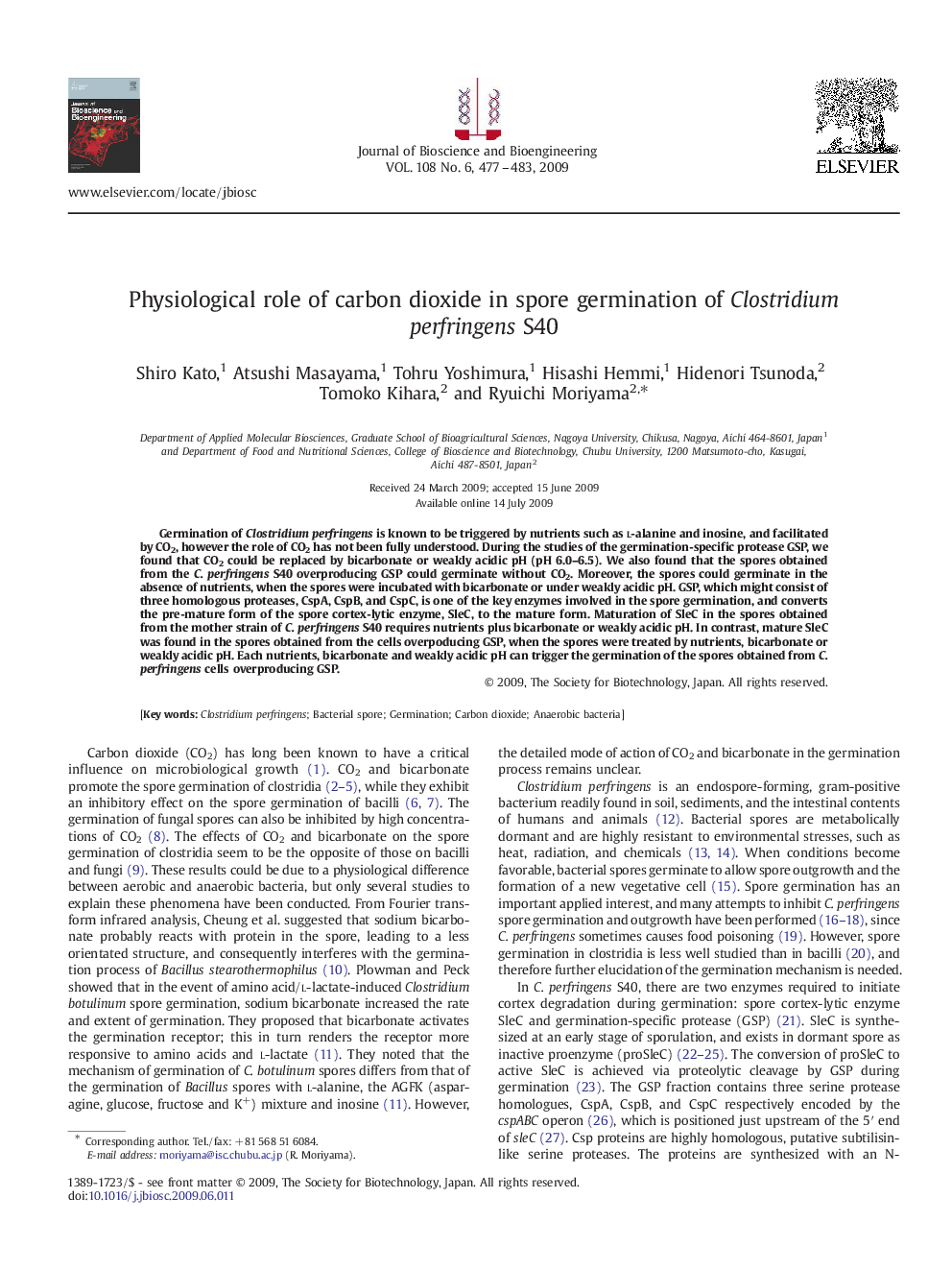| Article ID | Journal | Published Year | Pages | File Type |
|---|---|---|---|---|
| 21591 | Journal of Bioscience and Bioengineering | 2009 | 7 Pages |
Germination of Clostridium perfringens is known to be triggered by nutrients such as l-alanine and inosine, and facilitated by CO2, however the role of CO2 has not been fully understood. During the studies of the germination-specific protease GSP, we found that CO2 could be replaced by bicarbonate or weakly acidic pH (pH 6.0–6.5). We also found that the spores obtained from the C. perfringens S40 overproducing GSP could germinate without CO2. Moreover, the spores could germinate in the absence of nutrients, when the spores were incubated with bicarbonate or under weakly acidic pH. GSP, which might consist of three homologous proteases, CspA, CspB, and CspC, is one of the key enzymes involved in the spore germination, and converts the pre-mature form of the spore cortex-lytic enzyme, SleC, to the mature form. Maturation of SleC in the spores obtained from the mother strain of C. perfringens S40 requires nutrients plus bicarbonate or weakly acidic pH. In contrast, mature SleC was found in the spores obtained from the cells overpoducing GSP, when the spores were treated by nutrients, bicarbonate or weakly acidic pH. Each nutrients, bicarbonate and weakly acidic pH can trigger the germination of the spores obtained from C. perfringens cells overproducing GSP.
